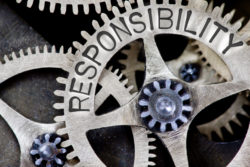21
09
.23
Effective, Responsible and Safe Research on Online Communities (EFRESH) – an introduction
Members of Horizon Digital Economy Research are running a new Horizon project called Effective, Responsible and Safe Research on Online Communities (EFRESH). Here they explain the background and aims of the project.
In recent years, research into online communities has become a popular and important field of academic work. Work in this area explores how people meet in online spaces such as public forums, social networking sites, and private spaces such as WhatsApp groups. Existing research findings have helped to advance understanding of phenomena such as filter bubbles, the spread of online misinformation, and the formation of online identities. It has also highlighted various opportunities and challenges for the moderation of online communications.
As the number of online communities continues to grow, the capacity for research to add further insights also increases. However, certain factors can make the conduct of this research very challenging. We experienced these challenges ourselves in the Everything in Moderation project and are aware of others who have also experienced them. One challenge relates to gaining access to online communities. An increasing number of groups choose to post in more ‘private’ end-to-end encrypted spaces, and this can make it very difficult to identify them and approach them for the purposes of research. Furthermore, in a reflection of the current divisive political climate, online communities can often centre on controversial/inflammatory topics and can be mistrustful of outsiders, including researchers, seeking to engage with them. This connects to a second challenge: online communities may react with hostility to attempts to make them a topic of investigation. Some researchers have experienced (online) harassment from groups they have been studying. A recent project called REASSURE found that two-thirds of researchers studying online extremism and terrorism had experienced harms such as being trolled or even receiving death threats in the course of their work.
A final challenge relates to responsibility dilemmas when studying online communities. In our own Everything in Moderation project we faced questions over what our obligations would be if we found out that the communities we engaged with were involved in certain forms of illegal activity. As researchers, it benefits us to reflect on how we can be responsible in our work and whether we may need to make adaptations to be ‘more’ responsible. We may even face a more central question that cuts across the first two challenges: are there some situations in which it is preferable that the research itself is not done? For instance, might it be that the risk to researcher safety is so high that it outweighs any benefits of carrying out the study? Might an online group have good reason to wish to remain private such that researchers should not risk exposing them to public attention? Or, since contemporary research methodologies often emphasise empowering participants, are there some online groups that should not be empowered through research?

In the EFRESH study we address these challenges. We are a team of researchers with experience in the study of online communities and the of Responsible Innovation approaches. We will conduct a series of research and engagement activities (literature reviews, questionnaires, interviews and workshops) with other researchers working in this field to scope the challenges being faced and co-create guidance to tackle them. We will also engage with researchers who work in other fields and who face similar challenges to identify what we can learn from their established practices. Through these activities we will produce written guidance relevant to individual researchers, research groups and research institutions. The guidance will identify practices to promote research on online communities that is effective, responsible and safe. Our project will therefore contribute to, and support, new research on online communities and advance discussion of what constitutes best practice in this field.
Tags:
everything in moderation,
moderation,
online moderation,
responsible innovation,
responsible research















